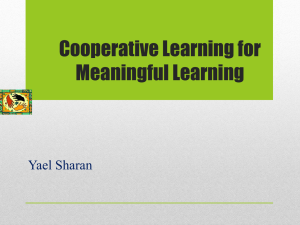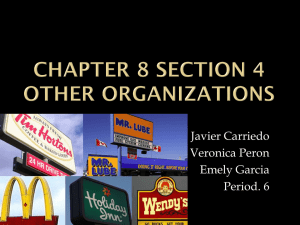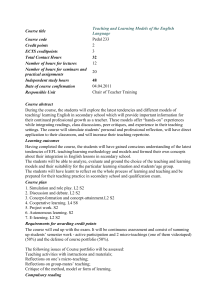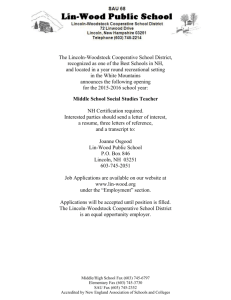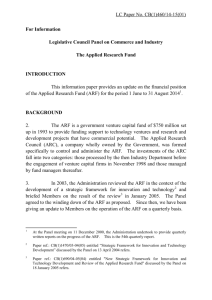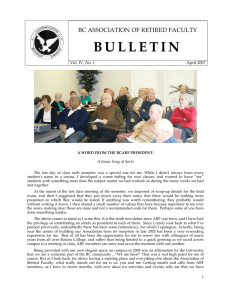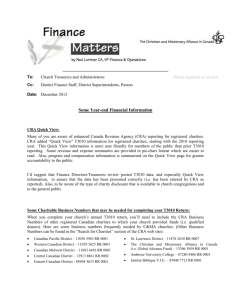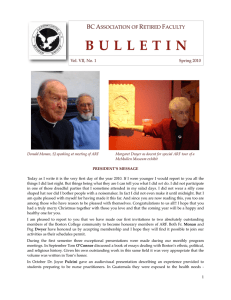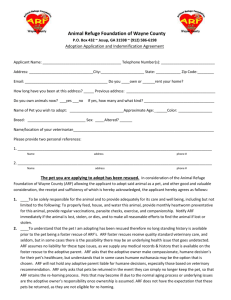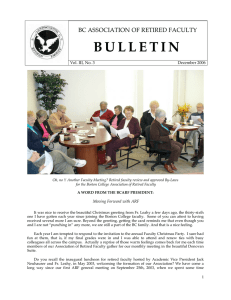Draft Concept Paper for the ARF Study on the Regional Security
advertisement
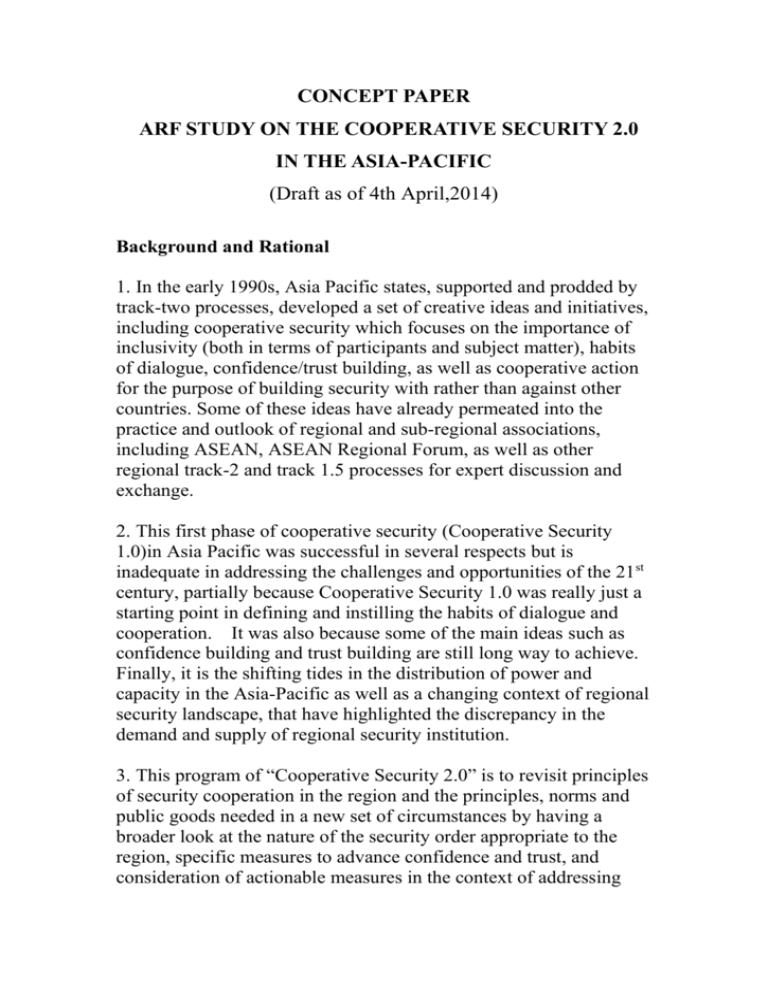
CONCEPT PAPER ARF STUDY ON THE COOPERATIVE SECURITY 2.0 IN THE ASIA-PACIFIC (Draft as of 4th April,2014) Background and Rational 1. In the early 1990s, Asia Pacific states, supported and prodded by track-two processes, developed a set of creative ideas and initiatives, including cooperative security which focuses on the importance of inclusivity (both in terms of participants and subject matter), habits of dialogue, confidence/trust building, as well as cooperative action for the purpose of building security with rather than against other countries. Some of these ideas have already permeated into the practice and outlook of regional and sub-regional associations, including ASEAN, ASEAN Regional Forum, as well as other regional track-2 and track 1.5 processes for expert discussion and exchange. 2. This first phase of cooperative security (Cooperative Security 1.0)in Asia Pacific was successful in several respects but is inadequate in addressing the challenges and opportunities of the 21 st century, partially because Cooperative Security 1.0 was really just a starting point in defining and instilling the habits of dialogue and cooperation. It was also because some of the main ideas such as confidence building and trust building are still long way to achieve. Finally, it is the shifting tides in the distribution of power and capacity in the Asia-Pacific as well as a changing context of regional security landscape, that have highlighted the discrepancy in the demand and supply of regional security institution. 3. This program of “Cooperative Security 2.0” is to revisit principles of security cooperation in the region and the principles, norms and public goods needed in a new set of circumstances by having a broader look at the nature of the security order appropriate to the region, specific measures to advance confidence and trust, and consideration of actionable measures in the context of addressing complex security challenges that are examples of constructive steps forward. The proposal The proposed study is jointly conducted by four ARF experts and eminent persons(EEP) as well as their affiliated institutes. They include two Chinese EEPs (Dr. CHEN Dongxiao and Dr. ZHAI Kun), one Canadian EEP (Prof. Paul Evans) and one Indonesian EEP (Dr. Rizal Sukma). They will mainly stay in their respective workplaces while undertaking studies. In addition to that, a couple of field trips and interviews, two or three trilateral workshops will be conducted as required based upon study agenda. The initial draft of the studies is to be circulated to some other EEPs for their comments and suggestions in first quarter of 2015 (or by the ISG on CBMs and PD) and the final result of study shall be submitted to the ARF ISG, the Senior Official's Meeting and Ministers' Meeting in 2015 for their deliberations Objective and Success Criteria 1. Clarify and examine the meaning and utility of several key concepts that might be embedded in Cooperative Security 2.0, among them: consociational security order; self-restraint; reassurance measures; trust and empathy building measures; opportunity engineering; new model of majar power relations, ASEAN way and principles etc. 2. A specific look at gaps of threat and threat perception in the Asia-Pacific, with the stress on Northeast Asia and South East Asia, including regional hot spots. Countries and how to bridge them? What are the nature of confidence and trust and consideration of whether “empathy” is a necessary, and so far missing, catalyst to make them work more effectively. 3. Analyze the building blocks for a desirable regional security order/cooperative security 2.0, including how to apply some of the key concepts to this process, priorities, difficulties and possible 2 roadmap, the role of bilateral security alliances, ASEAN-led multilateral mechanism in the future security structure. 4. The recommendations shall be policy oriented, realistic and actionable. 5. The study should be completed within the timeframe stated in this ARF project brief. Timeframe August 2014- August 2015 (between the 21st ARF and 22nd ARF) Funding and Budget The study program is to be covered by ARF Fund. A budget of around USD 100,000 is estimated, which includes professional fee, travel cost, field research, printing and reproduction as well as miscellaneous and contingency. 3

